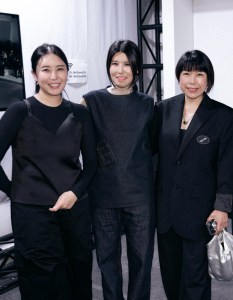With worldwide dealmaking volume reaching a decade low in 2023 — according to Statista data — global M&A activity is expected to pick up the pace again in 2024, albeit with a subdued appetite.
In line with key global markets, in 2023, China‘s deal volume declined 15.3 percent compared to the same period last year, according to GlobalData, but the drop was relatively lower compared to its peers, including the U.S., the U.K. and India, which dropped 42 percent, 26.9 percent, and 38.4 percent, respectively.
In the near future, China remains a top APAC market for VC funding activity aside from the U.S. in terms of deal volume and value, according to GlobalData’s analysis.
In the first 11 months of 2023, China accounted for 16.1 percent of global VC deals, with funding value at 17.9 percent of international deals.
Yet for some investors, restrictions on capital flow, slower-than-expected economic recovery, high U.S. interest rates, Chinese equities’ sluggish performance on the U.S. stock exchange, and geopolitical trade barriers are also dampening investor interest in China.
“Investors are still busy offloading projects that took a blow after the collapse of the consumer goods valuation bubble in 2020 and 2021,” said a former BCG consultant, who requested anonymity, pointing to well-known retail labels such as beauty retailer Harmay and beauty label Perfect Diary as overpriced deals that sobered the market up.

Adrian Cheng and Matthew M. Williams
Courtesy of New World Development
However, Chinese consumers’ appetite for newness will still drive dealmaking in 2024.
Adrian Cheng’s recent investment in 1017 Alyx 9SM, Anta’s acquisition of Chinese sportswear brand Maia Active, luxury e-commerce platform Senser’s investment from Xiaohongshu, L’Oréal’s investment in Chinese supply chain operations, and Estée Lauder Cos.‘ Code Mint and Melt Season deals in China are examples of how investors are staking a claim in the country’s consumption-driven economy revival.
Cheng, who heads the family business empire as chief executive officer of New World Development and founder of K11 Group, said his recent investment in Alyx, which was made via a new private vehicle that he described as a “lifestyle platform” spanning from fashion to entertainment, will help the brand accelerate its development, hire more staff and expand its accessories, footwear, and jewelry offerings in particular.
His plan for the new private vehicle is to “strategically invest in cutting-edge designers and companies who are redefining the boundaries of fashion” and ones that “cross-pollinate fashion with art and music, community, and culture as well.”
It means brands under Cheng’s ownership could form a synergy with his K11 art mall retail concept, which is expanding swiftly across major Chinese cities. A major landmark project to be unveiled in 2024 will be K11 Ecoast in Shenzhen, a vast waterfront complex that will incorporate a mall, multipurpose art space, office building, and promenade.

Angelica Cheung with We11done’s Jessica Jung and Dami Kwon
Courtesy of We11done
For Angelica Cheung, founding editor of Vogue China-turned-venture partner at HongShan, formerly known as Sequoia China, investing in China is the same as everywhere else. “Therefore, to me, fashion investment has always been an international approach,” said Cheung.
For Cheung, the right target, or “the best companies,” should possess features such as “holistic dynamics of products, consumers and methodology.” Brands under her belt include We11done, Ami, Holzweiler, and the Canadian e-commerce site Ssense.
“The Chinese fashion market, after 20 years of development, is stepping into a new era when the Gen Z generation is very well educated by all the best brands and experiences. Still hoping for newness and surprises, they are expecting products and brands to be more substantial with better quality and more inspiring instead of just a gimmick,” explained Cheung.
“Under more constrained market circumstances, we expect the reshuffling of brands on the market to continue,” said Meimei Ding, chief brand officer at TheImmersive and founder of the showroom DFO, which is helping brands like Foo & Foo, GCDS, System, Beautiful People and Stine Goya expand their reach in the China market.
For Ding, catering to an increasingly quality, comfort, or value-sensitive Chinese clientele means consumers are seeking “a closer relationship with the merchandise they purchase.”
In the eyes of Cheung, it means moving fast and defining the meaning of “better” to consumers, “which requires a stronger lifestyle and value statement that comes with the products,” added Cheung.
For Scott Chen, managing partner at L Catterton focused on the Asia fund, “experience over possession” will still be a driving force for investment in China’s fashion and lifestyle space in 2024.
With a focus on consumer goods, L Catterton has invested in Hi!Papa, a skin care label for children; Partner Pet and Pure & Natural, two pet food labels; Trautec, a synthetic collagen manufacturer, and Sugar Cosmetics, one of India‘s largest cosmetics brands. In November 2022, the private equity firm launched its first Yuan fund targeting 2 billion renminbi, or $282.5 million.
“Consumers are seeking out unique, unforgettable and personally meaningful experiences over mere transactions. The trend ups the ante for brands, which must deliver their narratives and market their products in more wholesome and creative ways than before,” said Chen.
“While fashion trends come and go, we believe consumers’ desire for authenticity and self-expression will persist. Look no further than the rise of ‘dopamine dressing,’ ‘Maillard style’ outfits, and to some extent, Shanghai’s lively Halloween scenes this year for signs that Chinese fashionistas are still very keen to refresh their wardrobes,” added Chen.
“Perhaps even more than before, Chinese consumers’ OOTDs can be viewed as embodied expressions of their current aesthetics, moods and attitudes,” Chen said. “Against this backdrop, our investments in lifestyle brands such as Birkenstock, Ganni and Etro all stand to benefit from this rising need for authentic self-expression.”
In the beauty space, flush with cash from the e-commerce boom in the past few years, local beauty conglomerates will continue to seek global targets to meet the needs of China’s sophisticated consumer base hungry for new brands and novelty products.
According to Euromonitor, China’s beauty and personal care market reached $60.7 billion in 2023. According to Statista, it is projected to grow at 5 percent a year from 2023 to 2028.
“Take, for instance, Ushopal’s acquisition of international beauty brands. This move signifies the active role and growing influence of Chinese companies on the global stage,” said Gabby Chen, global expansion president at Florasis, a Hangzhou-based cosmetics brand known locally as Hua Xizi.
Known for well-designed and Chinese culture-inspired products and packaging, Jeffree Star, called Florasis “the world’s most beautiful makeup.”
“Yatsen Holding Limited’s strategic acquisitions, like that of Eve Lom, demonstrate a cunning blend of understanding the Chinese market and leveraging the influence of international brands,” said Chen. “This strategy highlights the advantage local investors have in grasping rapidly changing consumer demands and the complex regulatory environment in China.”
As Chinese capital goes global, flush capital is only part of the formula for success.
For L Catterton’s Chen, a recent investment in Trautec, a domestic manufacturer of synthetic collagen, also points to the fact that domestic players are “better equipped than international ones to address beauty shoppers’ specific functional needs,” he said.
Florasis’ Chen also pointed out that while China’s neighboring nations such as Thailand, Malaysia and India have seen a new wave of international investment in the fashion and beauty space due to a shift in the global economic focus, China’s leadership in the region remains unquestioned.
“This shift demonstrates a commitment to innovation and diversified growth in the global beauty and retail industry, which was historically dominated by international conglomerates. Now the landscape is welcoming fierce competition from Chinese domestic beauty companies like Ushopal, Yatsen, Syoung and Joy Group,” said Chen.




